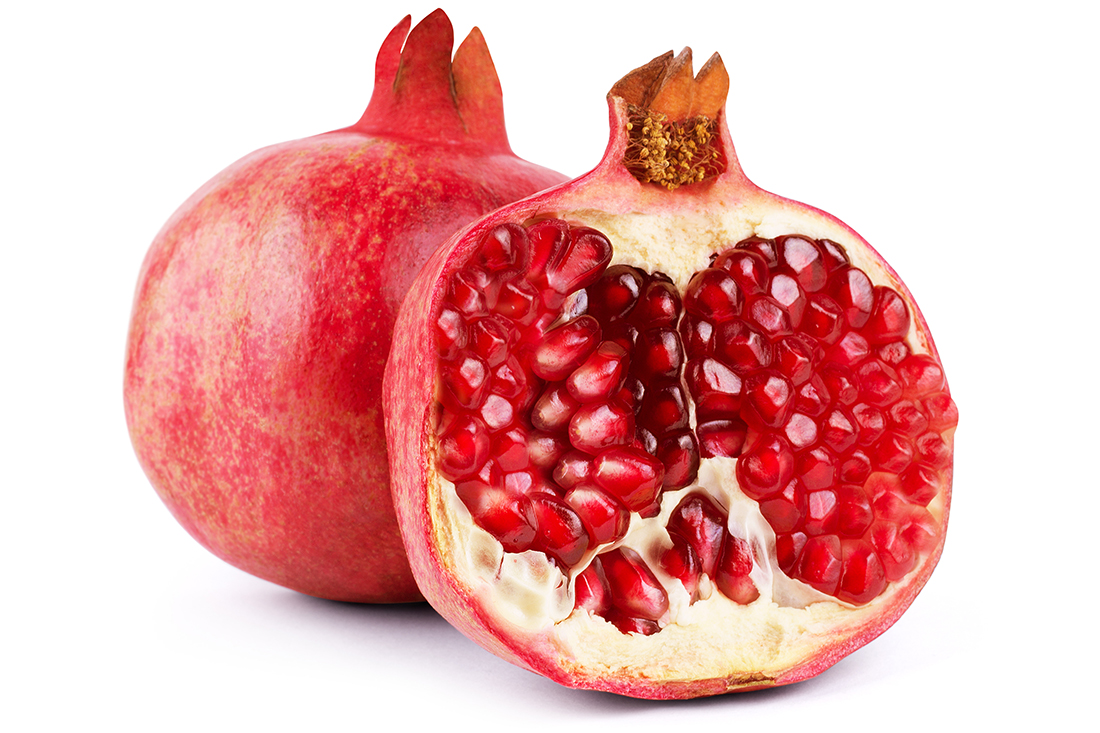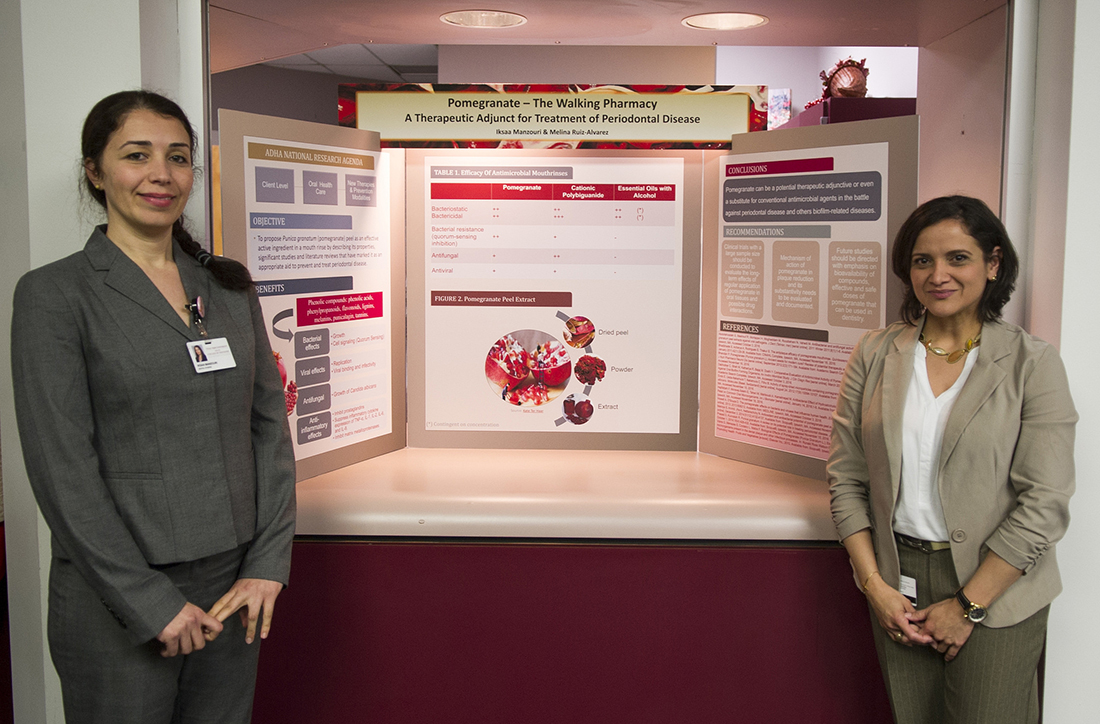Pomegranate packs a punch

Iksaa Manzouri grew up surrounded by pomegranate trees. The ruby-red fruit would bloom every fall in the yard of her childhood home in Yazd, Iran; she can still see the buds, smell its fruit. Her family ate the pomegranates — the fruit with its jewel-shaped seeds was delicious — but there was an additional use for it.
“Going to the dentist there is a luxury,” says Manzouri, a second-year dental hygiene student. “People would use pomegranate as a mouth rinse.”
Even her mother was a steadfast proponent of its medicinal uses.
“She would say, ‘You have pain? I have something for you. You have inflammation? I have something for you,’” Manzouri recounts.
As she soaked in the posters during the 2016 Research Scholars Day last spring at Texas A&M College of Dentistry, these memories came flooding back to her.
“What about pomegranate?” she asked, turning to her classmate, Melina Ruiz-Alvarez. The two had already decided to work together as research partners for their table clinic, a requirement in the second year of the dental hygiene curriculum, and were looking for sources of inspiration.
They looked at each other for a long moment, and Ruiz-Alvarez gave a thoughtful nod: “Yeah, I’m thinking about it,” she replied.
So Ruiz-Alvarez and Manzouri set off on a mission. They knew from personal experience that pomegranate-based mouth rinses are used as a holistic treatment in certain parts of the world. But was there any scientific evidence behind the supposed benefits?

They approached their faculty mentor, Mary Vu, with the idea in fall 2016. An advocate for holistic health and wellness, Vu was already aware of the fruit’s antioxidant properties, not to mention its status as an antiplaque agent. She was taken with the idea.
“As natural and organic alternatives to traditional pharmaceuticals are becoming increasingly popular, I think Iksaa and Melina’s research is exactly what people want to see,” says Vu, clinical assistant professor and clinic coordinator in the Caruth School of Dental Hygiene. “There are some products on the market that have added pomegranate as an ingredient but may not be using the peel extract itself, which is where all the antimicrobial properties lie.”
The student researchers’ primary objective: To propose pomegranate peel as an effective active ingredient in a mouth rinse by describing its properties, significant studies and literature reviews that have indicated it as a therapeutic aid to prevent and treat periodontal disease.
Despite the fact that the U.S. market doesn’t have pomegranate peel mouth rinses on the market, it didn’t take long before the literature review yielded promising results. Manzouri and Ruiz-Alvarez compared existing studies on pomegranate peel extract mouthwashes with studies of over-the-counter antiseptics composed of essential oils and alcohol. They did the same with prescription mouth rinses containing cationic polybiguanide. The review and subsequent comparison revealed that pomegranate peel mouth rinses contain all of the same bacteriostatic, bactericidal, anti-inflammatory, antifungal and antiviral properties as their synthetic counterparts. In addition, they found pomegranate shows anti-quorum sensing properties, which eliminate the chance of antimicrobial resistance.
“We said, ‘Well, this is amazing,’” Ruiz-Alvarez recounts. “There are so many benefits. All of these properties tell us that it can be a potential adjunct in the treatment of chronic gingivitis or in the maintenance of periodontal patients.”
The findings have gained attention, earning the students second place in the table clinic competition during the Texas Dental Hygienists’ Association/Texas Dental Hygiene Educators Association meeting in January. They were awarded first place for their table clinic during the dental school’s Research Scholars Day April 5, which means they’ll represent Caruth during the American Dental Hygienists’ Association national meeting come June.
While Manzouri and Ruiz-Alvarez look toward graduation in May, followed by private practice, they don’t plan to abandon the project. Next steps could include clinical trials to evaluate the long-term effect of pomegranate on oral tissues, as well as any possible drug interactions. They also stress the need to document just how pomegranate aids in plaque reduction, assess the compound’s availability and most importantly, evaluate safe doses that can be used in dentistry.
Both are considering a public health master’s in the future — and planning to pick back up with the study.
“We are not going to stop,” Manzouri says. “It’s just the beginning. We want to take it to the next level.”